Research Article
Aim & Scope
* To host scientific and current developments in the field of social sciences and educational sciences.
* To be an easily accessible and prestigious journal that allows academicians to publish.
* To provide readers with the opportunity to follow scientific developments with open access.
Social sciences and educational sciences.
Author Guidelines
WRITING RULES AND AUTHOR GUIDE
Click for use the Article Preparation Template
GENERAL RULES
FONT STYLE : Times New Roman
REFERENCES DISPLAY : APA 7 References System must be used at all scientific disciplines.
PAGE MARGINS : 4 cm from the top side and 3 cm from the other sides should be left.
TOTAL WORDS LIMIT : Articles should be prepared between 3.000-10.000 words account.
PARAGRAPH : It should be uninterrupted, front space 6 nk and back space 6 nk, 12 pt, Times New Roman, 1,5 space line
ARTICLE WRITING RULES
ARTICLE TITLE : Only First Letters Upper (Like a statement), 14 pt, bold, centered, front space 0 nk and back space 18 nk,
AUTHORS' NAMES : Fill in the Title Page Template. Do not include it in the article file.
ABSTRACT : Between 100 – 250 words, uninterrupted, 10 pt, front space 18 nk and back space 6 nk, 10 pt, Times New Roman, 1,15 space line
EXTENDED ABSTRACT : This section should be written in English in 10-point size, 6 pt spaces in front and 6 pt spaces in back, and 1.15 line spacing should be used. This section should be between 750 – 1500 words and include the following topics:
Introduction
Conceptual and Theoretical Framework
Concepts
Literature Review
Method
Results and Discussion (Optional)
Conclusion and Recommendations
KEY WORDS : Between 3 – 8 words (order from general to specific), only first letters of keywords are Upper
FIRST LEVEL TEXT TITLE : All letters UPPPER, 12 pt, Bold, Left aligned
SECOND LEVEL TEXT TITLE : Only Initial Letters Upeer, 12 pt, Bold, Left aligned
TEXT : Continuous sentence spelling, 12 pt, front space 6 nk and back space 6 nk, Times New Roman, 1,5 space line
CONCLUSION TOPIC : All letters UPPER, 12 pt, Bold, Left aligned
CONCLUSION TEXT : Continuous sentence spelling, 12 pt, 1,5 nk (line space)
REFERENCES TOPIC : All letters UPPER, 12 pt, Bold, Left aligned
REFERENCES : APA 7, Suspended
Ethical Principles and Publication Policy
Open Access Policy: USBED is an open-access journal. Anyone who wishes can publish in USBED and benefit from the publications, provided that they comply with the scientific publication ethics rules. USBED does not charge any fees for both uses.
USBED expects all parties to adhere to these criteria.
1. Code of Conduct for Author(s):
Author(s),
1)They don’t not claim copyright fee for their manuscripts submitted to USBED.
2) They can only submit original works to USBED.
3) Prepare(s) the reference list thoroughly and definitely indicate the cited sources.
4) They have the right to withdraw their manuscripts before the article evaluation process begins. However, they must inform the journal editors with a withdrawal request letter signed by all authors. The final decision for the manuscript is taken by the USBED Editorial Board. A manuscript that has passed the peer-review stage cannot be withdrawn.
5) Declare(s) and accept(s) that there is no potential conflict of interest between authors for papers with more than one author.
6) They are obliged to send all kinds of documents and data requested by the editors or reviewers regarding the manuscript.
7) They are responsible for informing the editors about any mistakes they discovered later in the manuscript. In addition, has(have) to cooperate in line with the editor's demands.
8) They do not propose to change author responsibilities (add author, change author order, remove author, etc.) for manuscripts whose evaluation process has begun.
9) Stated that the piece sent to USBED is not contrary to scientific research and publication ethics; It is deemed to have ensured that they do not contain plagiarism, forgery, distortion, republishing, slicing, unfair authorship, and other ethical violations (such as not clearly stating the support people, institutions, or organizations and their contributions to the research in the publications of supported research, not complying with the ethical rules in research on humans and animals, sharing the information contained in it with others before publication, misusing the resources, places, facilities, and devices provided or allocated for scientific research). Author(s) is/are responsible for cases that have been determined otherwise.
10) The author(s) must obtain ethical permission from the relevant institutions in all researches they collect individual data on humans and animals. This document should be uploaded to the system as an Supplementary File with the article.
2. Code of Conduct Editor:
USBED Editorial Board,
1) Strive to meet the information needs of readers and writers.
2) Support freedom of thought.
3) Organize and publish the "Peer-reviewing and Evaluation Process" in a clear, understandable, and accountable manner; they prevent deviations that may occur in the defined processes.
4) Publish the "Author's Guide", which includes detailed information on topics that the authors would need and ensure that the guide is up to date as required.
5) Editor appointed for the manuscript by USBED Editorial Board; Carries out the processes to improve the quality of the manuscripts to be published in the journal.
Conducts its business processes with respect to intellectual property rights and without compromising ethical standards.
6) Acts openly and transparently in matters that require correction and explanation.
7) Decides by considering the knowledge, skills, and experience expectations that all readers, researchers, and practitioners need.
8) Pays attention to the fact that the articles provide a scientific contribution to the reader, researcher, practitioner and are original.
9) Considers feedback from readers, researchers, and practitioners; provides descriptive and informative feedback.
10) After providing the preliminary controls (plagiarism scanning, suitability for spelling and bibliography, presence of the copyright form signed by the authors) of each manuscript sent to USBED, ensures that the manuscript is evaluated by sending it to at least two reviewers who are experts in their field.
11) If one of the two reviewers expresses a negative opinion, forwards the manuscript to a third reviewer or gives the final decision.
12) Ensures that there is no conflict of interest between the authors and the reviewers in the selection and designation of the reviewer…
13) Keeps the identities of the reviewers confidential for peer-reviewing.
14) Encourages reviewers to evaluate the work in an impartial, scientific, and objective language.
15) The final decision on whether to publish a manuscript is made by considering the original value of the manuscript, its validity, clarity of expression, and its suitability with the aims and objectives of the journal.
3. Code of Conduct for Reviewers:
Reviewers,
1) Only make assessments in their areas of expertise.
2) Make an objective assessment. They do not allow nationality, gender, religious beliefs, political views and commercial concerns to influence the evaluation.
3) Cannot have a conflict of interest with the authors or sponsors of the manuscript.
4) Conduct the evaluation process confidentially.
5) Can only use the manuscript they have evaluated for scientific purposes after the article is published.
6) Express their views using polite and constructive language.
7) If they detect a situation contrary to scientific and ethical principles in the manuscript they have reviewed, they inform the editor.
4. Code of Conduct for Publisher:
Publisher,
1) Secures the work of editors, reviewers, and authors.
2) Respects the property rights of the articles and keeps the record in the archive.
3) Keeps internet access to USBED database open.
4) Determines that the manuscript is free of plagiarism before the article is published.
Everyone involved in the manuscript publishing process agrees in advance to abide by this code of conduct. Editors, reviewers, and authors involved in this process are expected to inform us at usbedjournal@gmail.com if they detect an error or mistake.
Price Policy
Free of charge
Indexes
Other Indexes
Journal Boards
Editor Board

Philosophy and Related Sciences



Scientific Fields' Editors


Yeni Türk Edebiyatı alanında 2020 yılında doktoramı almış bulunmaktayım. Hâlen daha bu alanda çalışmalar yapmaya devam etmekteyim.


İlk ve ortaöğrenimini Anadolu’nun çeşitli illerinde tamamlayan Özen, yükseköğrenimini Orta Doğu Teknik Üniversitesi Eğitim Fakültesi Fizik Öğretmenliği Bölümünde lisans, Ankara Üniversitesi Eğitim Bilimleri Enstitüsü Eğitim Yönetimi Teftişi Planlaması ve Ekonomisi Anabilim Dalında yüksek lisans ve doktora dereceleri ile tamamlamıştır. Eğitimde hesap verebilirlik, pozitif psikolojinin (etik iklim, örgütsel mutluluk, erdemlilik, onarıcı adalet) eğitim örgütlerinde örgütsel davranışlara yansımaları, eğitimde hakkaniyetin (çok kültürlü eğitim, toplumsal cinsiyet eşitliği) genel çalışma konularını oluşturduğu ve bu konularda ulusal ve uluslararası dergilerde yayınlanmış makale, kitap bölümleri bulunan Özen; özel öğretim kurumlarında fizik öğretmenliği, Milli Eğitim Bakanlığına bağlı okullarda İngilizce öğretmenliği, Talim ve Terbiye Kurulu Başkanlığı adına eğitimcilerin eğitimcisi görevlerinde bulunduktan sonra 2012 yılından beri Giresun Üniversitesi Eğitim Fakültesinde öğretim üyesi olarak görevini sürdürmektedir.

Contributor to more than 110 research works.
The theme of PhD thesis is “Globalization as a factor for the transformation of Ukrainian civil society (NGOs analysis)” (2011).
Master's Degree in International Relations, Mariupol State University (2005); Master's Degree in Economics, Donetsk National University of Economics and Trade named after M. I. Tugan-Baranovsky (2017).
Academic interests: global civil society and global democracy, NGOs, e-civil organizations, cooperation between university and NGOs, and social responsibility of the university.



Ankara Üniversitesi Ev Ekonomisi Yüksek Okulu ile beraber çocuk gelişimi lisans programlarını bitirmiştir. 2005-2014 yılları arasında, Ankara Üniversitesi Fen Bilimleri Enstitüsü Ev Ekonomisi Çocuk Gelişimi ve Eğitimi Anabilim Dalı’nda yüksek lisans ve yine aynı alanda doktora programını tamamlayarak doktor unvanı almıştır. 2005-2014 yılları arasında Ankara Üniversitesi Uygulama Anaokulları 1’de ve 2’de çocuk gelişimci olarak çalışmıştır. Aynı zamanda, 2010-2014 yılları arasında, Ankara Üniversitesi Sağlık Bilimleri Fakültesi Çocuk Gelişimi lisans programında, dışarıdan öğretim görevlisi olarak görev almış ve lisans öğrencilerine ders vermiştir. 2015-2018 yılları arasında, Uludağ Üniversitesi Kreş-Anaokulu’nda ve Sosyal Bilimler Enstitüsü’nde görev yapmıştır. 2018 yılı Mayıs ayında, Yargıtay Başkanlığı Eğitim Müdürlüğü’nde çalışmaya başlamış, 2018 yılı Ekim ayında ise, Gündüz Bakımevi Müdürlüğü’nde Müdürlük görevini yürütmek üzere görevlendirilmiştir. Halen bu görevi sürdürmektedir. 0-18 yaş arası normal gelişim gösteren ya da kaynaştırma eğitimi alan çocukların gelişimsel özellikleri ve eğitimleri, çocuklarda dil gelişimi, çocuk edebiyatı, bilişsel gelişim, fen ve matematik becerileri desteklemeye yönelik çalışmalar yapmaktadır. 36-48 aylık çocukların eğitimlerinde uygulanmak üzere, aylık ve günlük planların yer aldığı plan kitabı hazırlamıştır. Yurt dışında ve yurt içinde birçok akademik yayınları ve bildirileri bulunmaktadır. Üniversitelerin ilgili bölümlerinde kaynak olabilecek bir kitap çalışması ve anaokullarına yönelik öykü kitap seti hazırlık aşamasındadır.
Advisory Board











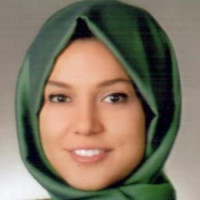









































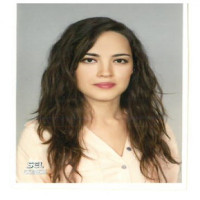

















































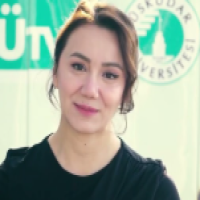












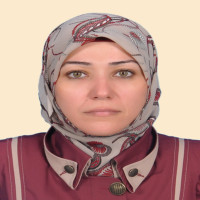



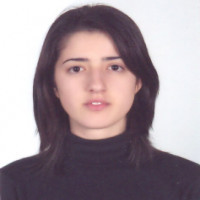










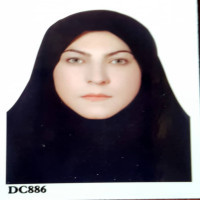


































































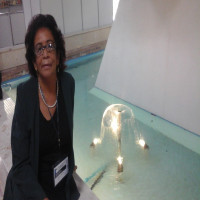


















































Editor in Chief: Prof. Dr. Aytekin DEMİRCİOĞLU



















